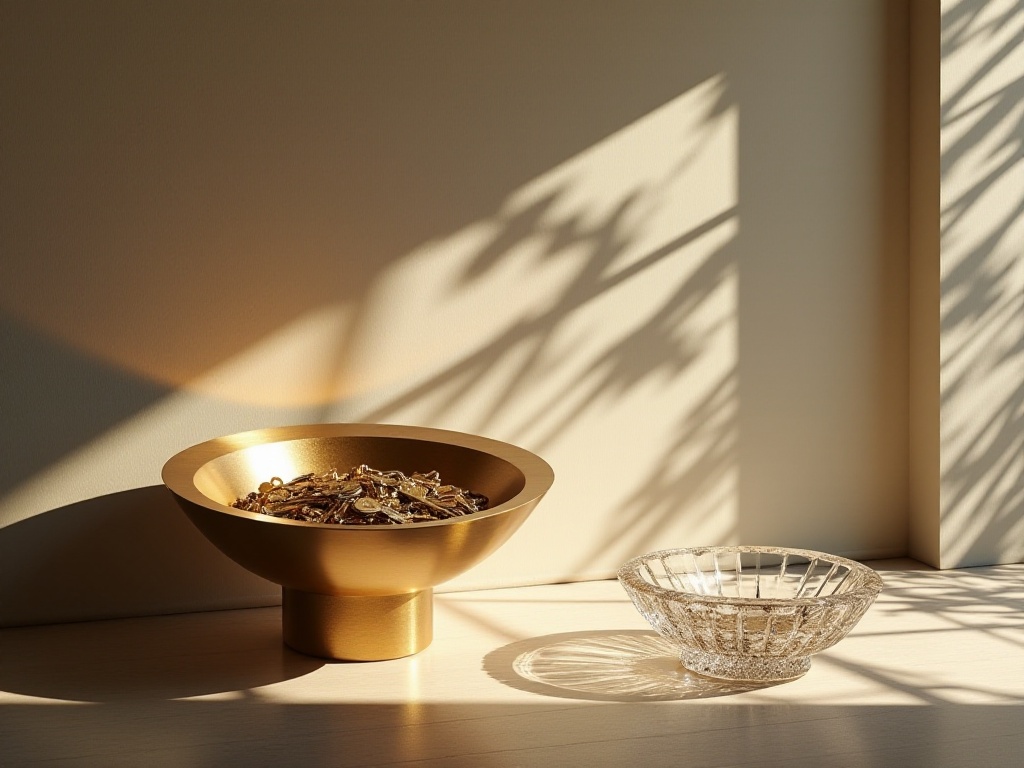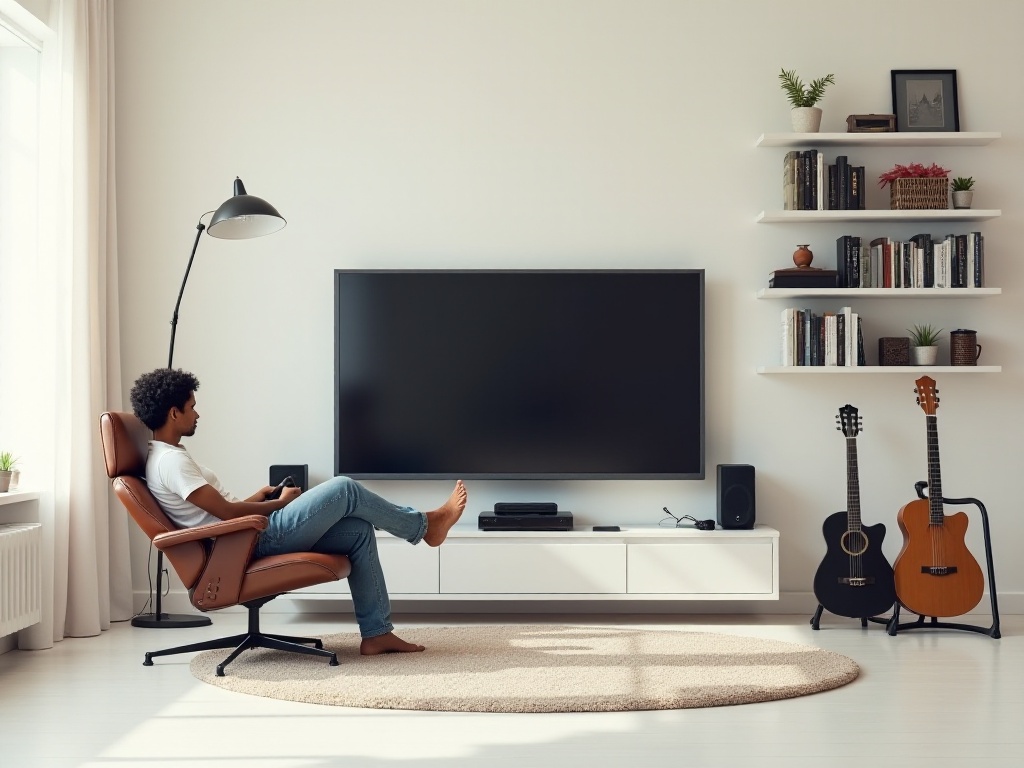Introduction
I was seriously about to lose it! Every morning felt like going to battle - couldn't find things, never enough time, always on the verge of being late to work. Work tasks were endless, had to stay late at the office, no time even for watching shows, let alone dating or exercise. I know you all can relate, but over the past year or so, through constant exploration and trial, I finally found some incredibly effective methods. Now I somehow gain at least 3 extra hours each day! It feels like I'm totally hacking life! Today I want to share my insights with you - I think these methods are super practical.
The Early Rising Revolution
Speaking of early rising, I used to be a classic "10-year oversleeper." Every morning I'd set five alarms, end up dismissing them all to keep sleeping, thinking "just five more minutes" even in my dreams. I'd either be late or rushing to avoid being late. Until one day, my boss called me in for a talk - just thinking about that embarrassing moment still makes me blush.
Later I discovered an amazing trick that really works! I put my alarm clock at the furthest point from my bed - right out on the balcony. This forces me to get up and walk over to turn it off, and by the time I stumble to the balcony, I'm already less sleepy. Plus, the morning light helps wake me up completely.
You might not know this, but in the first 15 minutes after waking up, your brain is especially receptive to new instructions and habit formation. This is because the cerebral cortex is particularly active during this time. I took advantage of this by drinking a glass of warm water and doing 5 minutes of simple stretches right after waking up. It was torture at first, but after a week, my body actually craved this ritual. I've kept this habit for over two years now, and the results are amazing!
Early rising hasn't just helped me say goodbye to being late - it's brought unexpected benefits. For instance, I now have time for a nutritious breakfast instead of just grabbing coffee and bread. The subway is less crowded, which improves my mood at work. Most importantly, I've found that one hour in the morning equals two hours of afternoon productivity - this is truly the first secret to time management!

Evening Preparation
Honestly, I'm really grateful to my former self who used to stay up late watching shows and scramble around the next day. Those chaotic experiences taught me an important lesson: morning efficiency is actually determined the night before.
Now I spend 15 minutes every evening - just that short time - preparing for the next day. I pick out and fold my clothes in advance, including underwear and socks. I gather everything I'll need - bag, laptop, charger, keys - and place them in a fixed spot by the entrance. If I have meetings the next day, I organize the materials in advance.
Most dramatically, I even plan the next day's breakfast. If I want an iced Americano, I start cold brewing the coffee; if I'm having a sandwich, I prepare the bread and ingredients. You wouldn't believe it, but this simple preparation saves me at least half an hour every morning! Plus, not having to frantically search for things puts me in a much better mood.
I remember once my roommate saw me preparing for the next day in the evening and laughed at me for being excessive. The next morning, she couldn't find her eyebrow pencil while doing makeup and was jumping around in panic, ultimately leaving with only one eyebrow done. Since then, she's joined the evening preparation army, and now we even keep each other accountable!
Kitchen Wisdom
When it comes to improving efficiency, I think the kitchen is where you can see results most easily. Before, my kitchen looked like a war zone when I cooked - water splashed everywhere from washing vegetables, condiment bottles scattered about, used pots and pans piled up like mountains. Cleaning up afterward took so long that I didn't even want to cook.
Later I discovered a super useful technique called "clean as you go." While waiting for water to boil, I wash used utensils; while waiting for food to cook, I put condiments back and wipe the cutting board clean. It took conscious effort at first, but it became natural with practice.
This method is magical - it's helped me reduce cooking time from an hour to about 30 minutes. Best of all, the kitchen is basically clean when I finish cooking, with no pile of dishes waiting to be cleaned. Now I finally understand why Michelin chefs' kitchens are always so neat - this is the professional way!
I also made myself an iron rule: all condiments must be returned to their proper place. This prevents scrambling to find things while cooking. When my mom visited and saw my kitchen management, she gave me a big thumbs up! Getting approval from my notoriously picky mom was no small feat.

The Two-Basket Laundry Method
This two-basket laundry method is truly my proudest invention! Before, sorting laundry took forever, separating white, light, and dark clothes. Sometimes I'd get lazy and throw everything in together, resulting in my new white T-shirts getting dyed - just thinking about it makes me cringe.
Then I had a brilliant idea: I put two laundry baskets at home, one for light colors and one for dark colors. Each day's clothes go directly into the corresponding basket. When it's time to do laundry, there's no need to sort - just dump one basket into the washing machine.
Sounds simple, right? But this small change saves me nearly an hour each week. Plus, the more accurate sorting means better washing results. White clothes stay white, black clothes stay black, and there's no more color bleeding.
I found this method works especially well when living with roommates. Everyone's clothes stay separate and are easy to retrieve. When my roommate learned about this method, she immediately implemented it in our home. Now our balcony has four neat laundry baskets, which looks really satisfying.
Digital Management
As someone born in the 95s, I'm really grateful to live in this digital age. Various apps have not only made our lives more convenient but also made time management super efficient. I've completely abandoned paper notebooks because they're too easy to lose or forget.
I use the Notes app to record everything I need to remember, from shopping lists to reading notes to random ideas. I manage all appointments and to-dos with a calendar app, which can set reminders so I never forget important things. Most importantly, I've created digital versions of all important documents and synced them to the cloud.
For example, I've photographed all my important documents - ID card, passport, educational certificates, etc. - and can access them anytime when needed. Contracts and receipts are scanned and saved to cloud storage, so I never worry about finding originals. Statistics show that average people spend 20-30 minutes daily looking for things, but through digital management, I've reduced this time to almost zero.
Once when applying for a visa, the officer suddenly requested a pay stub from two years ago. In the past, I would have panicked, but I simply pulled up the scanned copy on my phone, impressing the officer. Since then, I've become even more committed to digital management.

Focus Time Blocks
I learned this method from a productivity expert, and it's really made my work efficiency soar. The principle is simple: divide each day into several large blocks and focus on one task during each time block.
For example, 9-11 AM is my non-negotiable work time, during which I turn off phone notifications, set WeChat and other social media to Do Not Disturb, and concentrate on the most important work. I schedule colleague communications for noon, and handle routine tasks in the afternoon.
When I first started this plan, it was really uncomfortable. I kept wanting to check my phone or get interrupted by colleagues' chat messages. But after persisting for a while, I found this focused work state incredibly satisfying! Plus, efficiency improved dramatically.
Data shows that after being interrupted, people need an average of 23 minutes to regain focus. Through this time blocking method, my work efficiency increased by at least 40%. Work that used to require overtime can now be completed during regular hours.
Most amazingly, this work style has made my colleagues more respectful of my time. They know I won't reply during focus blocks, so they wait for my break time to find me. And because of increased efficiency, I can complete work better and receive more recognition.
Regular Organization
Honestly, I used to be completely clueless about organization. My room was always full of various things, drawers stuffed with random items bought who-knows-when, and clothes in the closet were a mess. Finding anything meant turning everything upside down, which really affected my mood.
Now, on the last weekend of each month, I unfailingly spend half a day doing a thorough organization. Things I don't need either get given away or thrown out, and every item finds its proper storage place. While this seems like it takes time, it actually saves time.
Now everything in my room has its fixed place. Cosmetics are organized by frequency of use, clothes are sorted by season and occasion, books and documents are arranged by category. Though the organization process can be tiring, the satisfaction of seeing a neat room is indescribable!
Statistics show that a regularly organized household saves 4-5 hours per week compared to an unorganized one. Because you're not constantly searching for things or tidying up mess. Most importantly, a clean environment improves mood and work efficiency.
I remember once when my boyfriend came over and saw my well-organized room, he gave me a big thumbs up. He said he'd never met a girl so good at organization - that compliment made me really happy!

Efficiency Multiplied
Through combining these methods, I can gain at least 3 extra hours each day. I use this precious time partly for learning new skills, like photography and video editing recently; partly for exercise, maintaining 3-4 workouts per week now; and partly just for relaxation, watching variety shows and TV series.
Most importantly, life has become more orderly and less stressful. No more racing against time - I can calmly complete plans each day. And because of good time management, my work performance has been recognized by leadership, and I even got promoted recently!
Honestly, while these methods might seem easy, they require great persistence to really stick to. I suggest starting with one or two methods that interest you most, then gradually adding more as they become habits. After all, time management isn't about making life busier, but about making it better.

New Explorations
Recently I've been trying some new time management methods. Like the Pomodoro Technique, which divides time into 25-minute work periods and 5-minute breaks. This method is particularly suitable for work requiring long-term focus and effectively prevents work fatigue.
There's also a method called time auditing, which involves recording where your time goes each day. I used a phone app to track my time use for a week and was shocked to discover how much time I spent on social media! This discovery made me realize there's still lots of room for optimization.
Time management is truly a process that requires continuous learning and improvement. Once I've practiced these new methods for a while, I'll definitely share my insights with everyone. After all, in this increasingly fast-paced era, mastering efficient time management techniques is really important!







